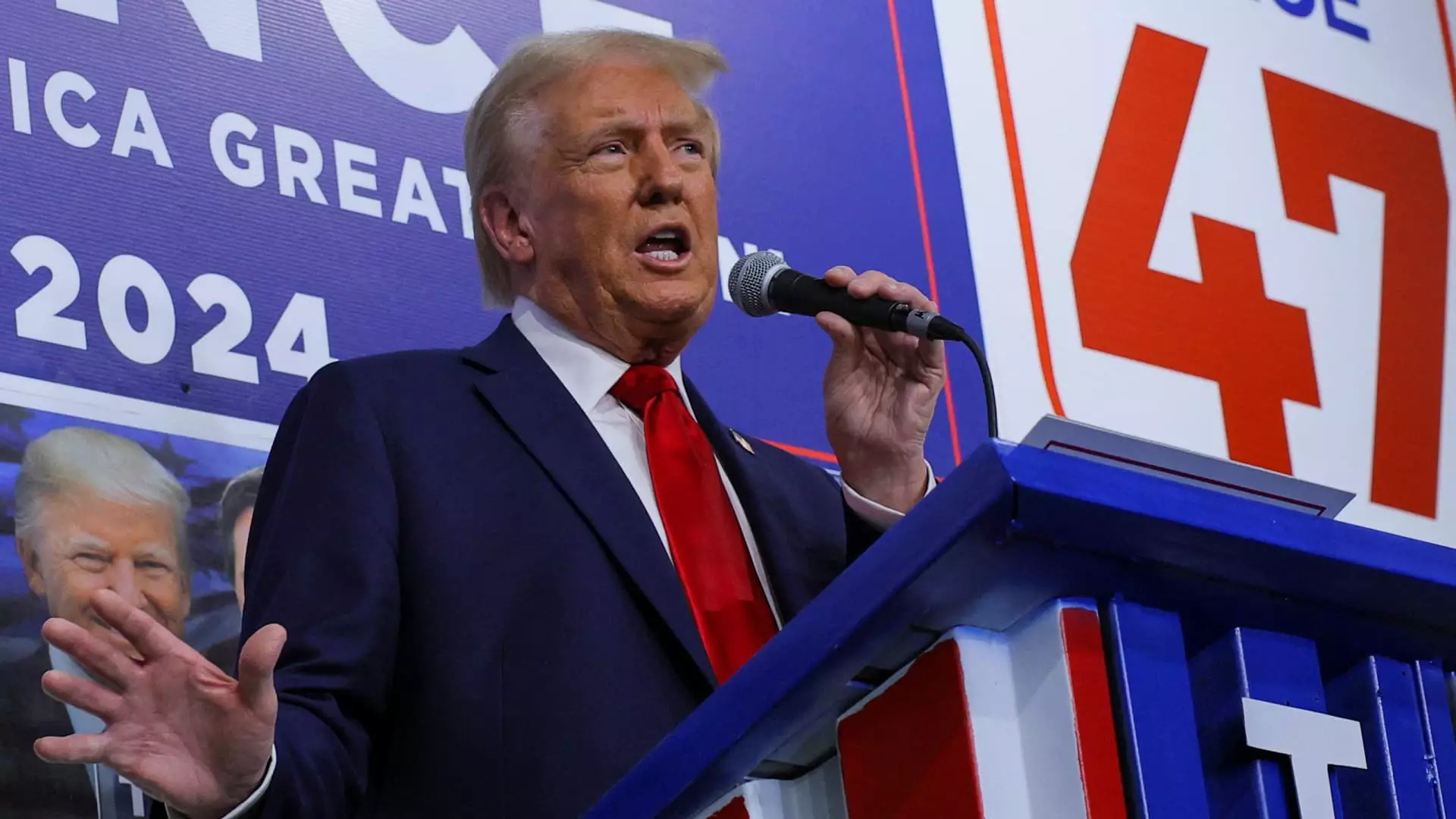Recent polling data from NBC News has thrown a spotlight on an increasingly contentious issue in American politics: tariff policies, particularly those proposed by former President Donald Trump. The survey reveals a significant dip in voter support for candidates advocating universal tariffs, with 44% of respondents indicating they would be less likely to support such a candidate if it meant imposing tariffs as high as 20% on imports. This statistic serves as a cautionary tale for Trump’s campaign, underlining the potential pitfalls of prioritizing an economic strategy that does not resonate with the electorate.
The polling, which sampled 1,000 registered voters between October 4 and October 8, indicates that only 35% of respondents were more inclined to favor a candidate with these tariff proposals while 19% claimed the issue was neutral in their voting decisions. This data highlights a critical mismatch between advocacy for high-import tariffs and actual voter preferences, suggesting a broader discontent with the economic implications of such policies.
Despite the evident unpopularity of his tariff proposals, Trump remains steadfast in his belief that high tariffs are essential for rebuilding American industry. In a recent interview, he asserted that exorbitantly high tariffs would incentivize foreign companies to establish manufacturing operations within the United States to evade these costs. This approach, he argues, would ultimately lead to job creation and bolster domestic manufacturing—a central tenet of his campaign strategy.
However, this perspective raises questions about the practicality and efficacy of such economic measures. Critics argue that while tariffs may initially seem like an attractive solution, they often come at the expense of consumers. The economic burden typically lands on imported goods, translating into higher prices for everyday Americans. Thus, while Trump touts tariffs as a strong economic plan, many economists contend that they could lead to increased inflation—a notion that directly counters Trumps’ assertion of revitalizing the economy.
Interestingly, Trump’s tariff proposals have not only attracted criticism from economists but have also sparked dissent within Republican circles. Leading figures like Senate Minority Leader Mitch McConnell have publicly rejected the idea, emphasizing that tariffs inherently elevate costs for American consumers. This division within the Republican Party signals a broader ideological rift surrounding economic strategies, especially those that could alienate voters concerned about rising prices in a recovering economy.
Vice President Kamala Harris has seized upon this internal GOP conflict, branding Trump’s proposals a “Trump sales tax,” a rhetorical strategy designed to frame the tariffs as detrimental to American families. This framing is particularly relevant in an election cycle heavily influenced by economic recovery narratives and rising household expenses.
Contrasting Trump’s sweeping tariff strategies, the Biden administration has adopted a more nuanced approach to trade, particularly with China. While it has maintained certain tariffs from Trump’s first term, it emphasizes targeted areas rather than broad-spectrum tariffs. Treasury Secretary Janet Yellen articulated this distinction by stating the administration’s focus is on strategic sectors, positioning it as a counter-narrative to Trump’s hardline tactics.
This divergence also speaks to the importance of adaptability in economic policymaking. Where Trump’s strategy caters to nationalistic fervor and aggressive protectionism, Biden’s approach reflects a more calculated response to global trade dynamics—attempting to balance domestic priorities with the complexities of international relations.
In light of this polling data and ongoing debates, it is clear that the future of tariff policies is poised to shape the 2024 electoral landscape. Candidates who promote hardline tariffs must navigate a fine line, appealing to their base without alienating a broader electorate that favors stable, affordable pricing. As the economic discourse evolves, voter sentiment will remain a critical factor in determining effective policy measures.
The reception of Trump’s universal tariff proposal is a stark reminder of the interconnectedness of economic policy and voter sentiment. With rising inflation concerns and an ongoing recovery effort, candidates must reassess their economic strategies, balancing nationalist ideals with the needs and preferences of American consumers. This evolution may ultimately define the political landscape leading to the next presidential election.



Leave a Reply